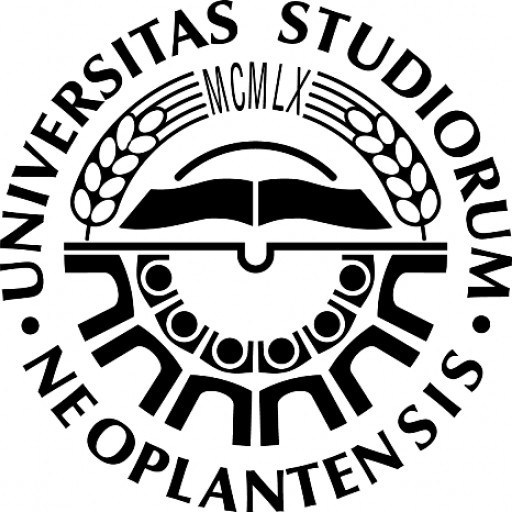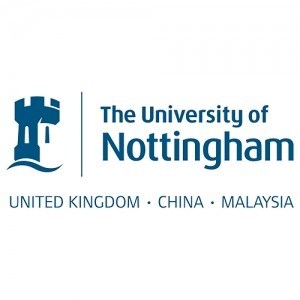Photos of university / #vubrussel
The Bachelor of Engineering in Computer Science at the Free University of Brussels offers a comprehensive curriculum designed to equip students with a solid foundation in computer science principles, programming languages, software development, and emerging technologies. The program aims to cultivate analytical thinking, problem-solving skills, and technical expertise essential for careers in various IT and technology sectors. Throughout the course of study, students will explore core topics such as algorithms, data structures, computer architecture, operating systems, database systems, and network security. Emphasizing both theoretical understanding and practical application, the program incorporates laboratories, project work, and internships to ensure students gain hands-on experience within a real-world context.
In addition to technical subjects, students are encouraged to develop skills in communication, teamwork, and critical analysis, which are vital in multidisciplinary work environments. The program also provides opportunities to specialize in areas such as artificial intelligence, machine learning, cybersecurity, software engineering, and data science, allowing students to tailor their education to specific interests and career goals. The curriculum is regularly updated to include the latest advancements in the field and incorporate industry best practices, preparing graduates to adapt to evolving technological landscapes.
Graduates of this program will be well-equipped for careers as software developers, system analysts, IT consultants, and research scientists, or for pursuing advanced studies and research in computer science. The university’s strong links with industry partners facilitate internships and job placements, ensuring students are well-prepared for successful professional paths after graduation. With a focus on innovation, practical skills, and theoretical knowledge, the Bachelor's in Computer Science at the Free University of Brussels provides a robust platform for entering the dynamic and fast-growing world of technology.
The Bachelor of Science in Applied Sciences and Engineering with a specialization in Computer Science at the Free University of Brussels offers students a comprehensive education designed to prepare them for the rapidly evolving field of technology. The program provides a solid foundation in fundamental concepts of computer science, including algorithms, data structures, programming languages, software development, and system architecture. Throughout the curriculum, students gain hands-on experience through practical projects, laboratory work, and internships, enabling them to apply theoretical knowledge to real-world problems.
The first years of the program focus on core topics such as mathematics, physics, and basic programming principles, establishing a strong interdisciplinary foundation. As students progress, they explore advanced areas including database systems, artificial intelligence, machine learning, cybersecurity, and network infrastructures. Special emphasis is placed on software engineering, ensuring students develop skills in designing, implementing, and maintaining complex software solutions.
The program also incorporates courses on information technology management, ethics in computing, and emerging trends to prepare students for leadership roles and responsible innovation in their careers. Students are encouraged to participate in research projects and collaborations with industry partners, fostering a practical understanding of the latest advancements and challenges in the field.
In addition to technical knowledge, the program emphasizes critical thinking, problem-solving, communication, and teamwork skills. Graduates will be well-equipped to pursue careers as software developers, system analysts, data scientists, or to continue their studies through master's programs in specialized areas of computer science and engineering.
With state-of-the-art laboratories, experienced faculty, and strong industry connections, the Applied Sciences and Engineering: Computer Science program at the Free University of Brussels aims to cultivate innovative thinkers and skilled professionals ready to contribute to technological progress and societal development. Upon completion, students will possess both the technical expertise and the adaptive skills necessary to succeed in a dynamic and competitive global job market.
Program requirements for the Bachelor in Applied Sciences and Engineering: Computer Science at the Free University of Brussels include a comprehensive foundation in core computer science concepts, programming languages, and software development. Applicants are expected to possess a secondary education diploma equivalent to the Belgian diploma of higher secondary education with a strong emphasis on mathematics and sciences. Prior knowledge of mathematics, including algebra, calculus, and discrete mathematics, is highly recommended to ensure successful coursework completion. Fluency in English is required, often demonstrated through standardized tests such as TOEFL or IELTS, as courses are conducted in English. Physical or online application submissions must include academic transcripts, a motivation letter explaining the applicant’s interest in computer science and career aspirations, and letters of recommendation from previous teachers or academic mentors. Applicants with relevant practical experience or certifications in programming, IT, or related fields may have their applications prioritized. The program aims to develop students’ abilities in algorithm design, data structures, database management, computer architecture, and programming paradigms. Participants are expected to complete a certain number of credits in general education, specialized computer science modules, and a final project or thesis demonstrating practical and theoretical expertise in a specific area of computer science. Attendance requirements include lectures, seminars, practical labs, and group projects, fostering collaborative skills. The curriculum also emphasizes ethical considerations in technology, cybersecurity, and emerging trends like artificial intelligence and machine learning. Students are encouraged to participate in internships, research projects, or exchange programs to gain real-world experience and broaden their professional network. Successful graduates will have acquired the technical competency, problem-solving skills, and theoretical knowledge needed to pursue careers in software engineering, data analysis, system administration, or continue with postgraduate studies. This program is designed to meet the evolving demands of the digital economy and aims to prepare students for both industry roles and innovative research initiatives within the field of computer science.
Funding options for the Bachelor of Applied Sciences in Computer Science at the Free University of Brussels include a variety of financial aid opportunities designed to support students throughout their studies. Tuition fees are structured according to the Belgian higher education regulations and are generally affordable, with specific amounts varying for different categories of students, such as domestic, European, and non-European international students. Students are encouraged to explore scholarship programs offered by the university, which may include merit-based scholarships, need-based aid, and Erasmus+ mobility scholarships for students participating in exchange programs. The university also collaborates with various governmental and private organizations that provide funding and grants for international students and residents of specific regions. Additionally, students can apply for student loans, either through Belgian financial institutions or international lenders that support Belgian students. Part-time work opportunities available on or near the university campus enable students to earn income during their studies, facilitating financial independence and easing economic burdens. The university’s Career Services and student support offices assist students in finding internships and part-time jobs that align with their academic schedules. Furthermore, students enrolled in the Computer Science program are encouraged to seek external funding sources such as European Union research grants or industry-sponsored projects, which sometimes offer stipends or financial support to participating students. In some cases, students from certain countries or programs may be eligible for specific scholarships or grants tailored to their demographics or academic interests. The university also provides financial planning resources and guidance to help students effectively manage their education costs. Overall, while the exact amount of financial aid varies, the university’s comprehensive support ecosystem aims to minimize financial barriers and promote accessible education for all students pursuing their degree in computer science.
The Bachelor of Science in Computer Science at the Free University of Brussels (Vrije Universiteit Brussel) is a comprehensive undergraduate programme designed to provide students with a solid foundation in the core principles of computer science and its applications. The programme combines theoretical knowledge with practical skills, enabling graduates to understand and develop complex software systems, analyze algorithms, and address computational problems across various domains. The curriculum covers key areas such as programming, data structures, algorithms, computer architecture, operating systems, databases, and software engineering. Special attention is given to emerging fields like artificial intelligence, machine learning, cybersecurity, and data science, reflecting the evolving landscape of technology.
Students benefit from a multidisciplinary approach, integrating aspects of mathematics, logic, and systems analysis to enhance problem-solving capabilities. The programme emphasizes critical thinking, innovation, and teamwork, preparing students for careers in industry, research, or continuing education. Through laboratory sessions, project work, and internships, students gain practical experience and develop technical proficiency. The university also fosters collaboration with industry partners, providing opportunities for real-world application of skills and networking. The academic environment supports an international perspective, attracting students from diverse backgrounds and encouraging global mobility.
Graduates of this programme are equipped to pursue roles such as software developers, system analysts, IT consultants, and research scientists. They are also well-positioned to continue postgraduate studies in specialized fields or undertake dual degree options offered by the university. The programme is delivered by experienced faculty members who are active researchers, ensuring that students receive up-to-date knowledge aligned with industry standards. Overall, the Computer Science bachelor's programme at Vrije Universiteit Brussel aims to produce competent and innovative professionals capable of contributing to advancements in technology and society.






